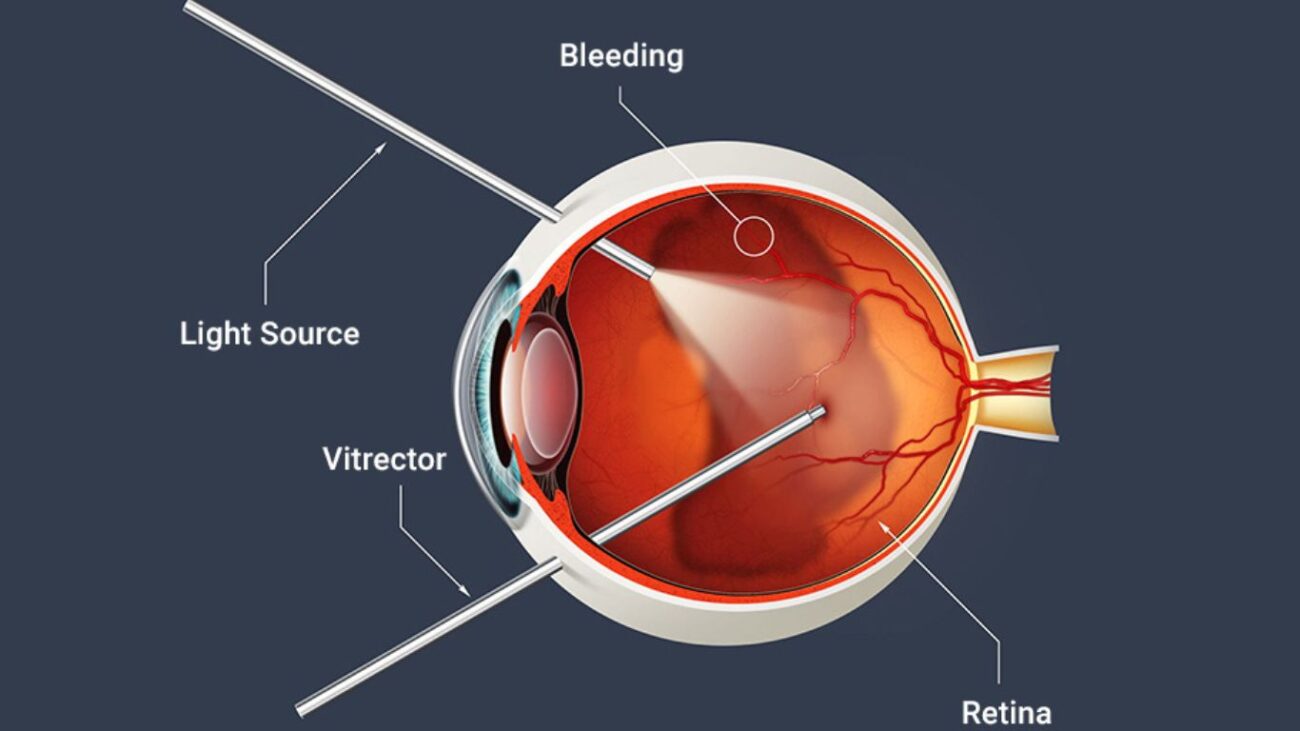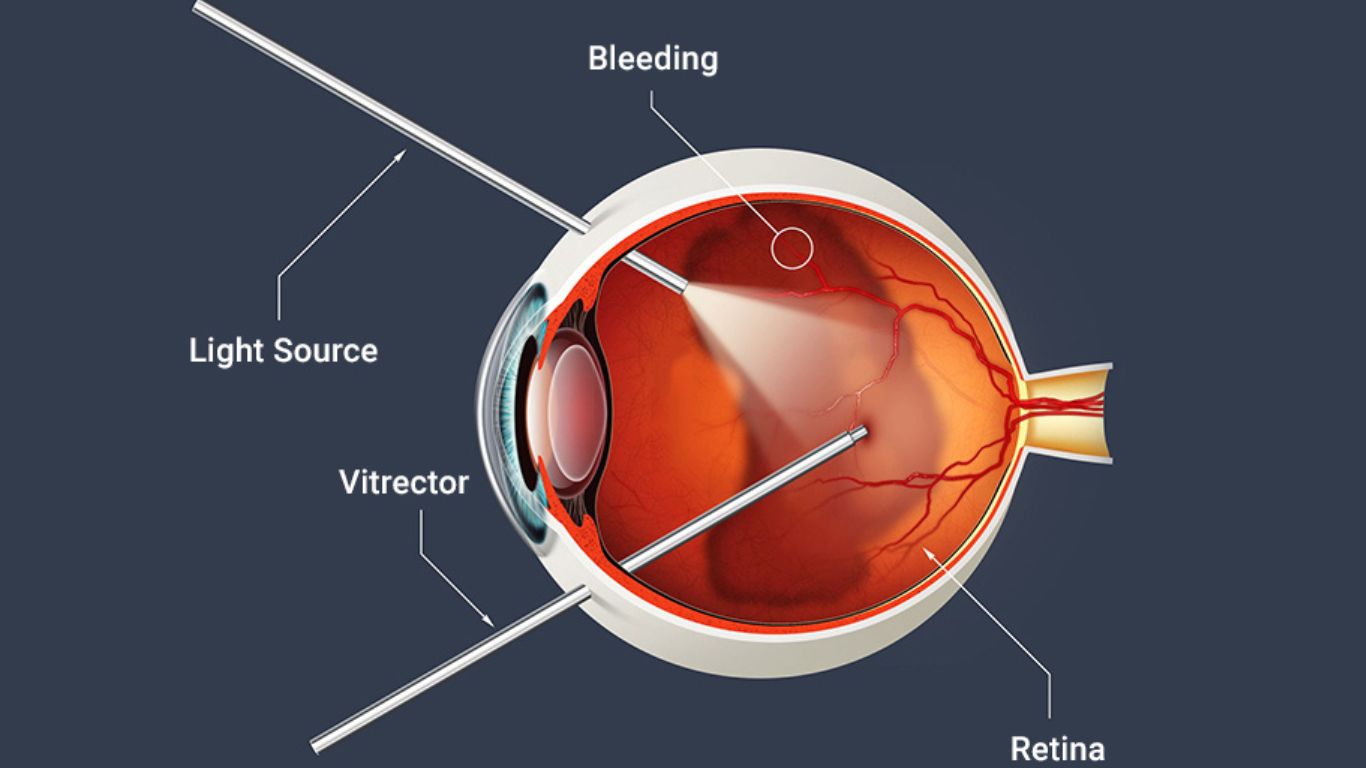Introduction:
When it comes to eye health, various procedures aim to ensure clear vision and optimal eye function. One such procedure is vitrectomy surgery, a crucial method often used to treat a range of eye conditions. In this comprehensive guide, we will delve deep into the world of vitrectomy surgery. From comprehending the process to investigating its advantages and managing recovery, we’ve got you covered.
Vitrectomy Surgery, Its Process, Benefits, and Recovery:
Ophthalmologists perform vitrectomy surgery, a specialized procedure, to address various eye conditions that affect the vitreous humor – the gel-like substance filling the eyeball. Additionally, this surgery involves the removal or replacement of the vitreous humor, aiming to restore clear vision and treat underlying issues. Now, let’s delve into a detailed examination of the key aspects of vitrectomy surgery.
The Vitrectomy Surgery Process:
Vitrectomy surgery is a delicate and precise procedure that involves several steps:

- Anesthesia: Before the surgery begins, local or general anesthesia is administered to ensure patient comfort.
- Small Incisions: The surgeon creates small incisions in the eye to access the vitreous humor.
- Vitreous Removal: Using specialized tools, the surgeon carefully removes the vitreous humor, allowing access to the retina and other structures.
- Treatment of Underlying Issues: If necessary, the surgeon adeptly addresses underlying issues, including conditions like retinal detachment, macular holes, diabetic retinopathy, or vitreous hemorrhage.
- Replacement: Depending on the case, the vitreous humor might be replaced with a clear solution or gas bubble to maintain the eye’s shape.
- Incision Closure: The small incisions are closed with sutures or are self-sealing, minimizing the need for stitches.
Benefits of Vitrectomy Surgery:
Vitrectomy surgery offers several benefits for patients experiencing various eye conditions:
- Restored Vision: The primary benefit of vitrectomy surgery is the restoration of clear vision, allowing individuals to see the world more vividly.
- Treatment of Complex Issues: This surgery is particularly effective for addressing complex conditions like retinal detachment and macular holes, which can significantly impair vision.
- Diabetic Retinopathy Management: For patients with diabetic retinopathy, vitrectomy surgery can help prevent further vision loss by removing blood and scar tissue from the retina.
- Reduced Floaters: Vitrectomy surgery can alleviate the presence of floaters, which are small specks that appear to “float” in one’s vision.
Recovery After Vitrectomy Surgery:
The recovery process after vitrectomy surgery varies depending on the individual and the complexity of the procedure. Here are some general guidelines:
- Post-surgery, doctors usually recommend patients to wear an eye patch or shield for protection.
- They should also avoid strenuous activities.
- Medication and Eye Drops: The surgeon may prescribe medication and eye drops to prevent infection and reduce inflammation.
- Limited Activities: Patients should avoid activities that could strain the eyes, such as reading, watching screens, or lifting heavy objects.
Consult with Our Expert ophthalmologist to explore the appropriate treatment options and ensure the best possible visual outcomes.
FAQs About Vitrectomy Surgery:
Q: Is vitrectomy surgery painful?
In surgeries, medical professionals typically administer anesthesia to patients in order to prevent them from feeling any pain. Patients may experience some discomfort or mild pain during the recovery period.
Q: How long does the surgery take?
A: The duration of the surgery varies depending on the complexity of the case. It can take anywhere from one to several hours.
Q. Are there any risks associated with vitrectomy surgery?
A: While vitrectomy surgery is generally safe, like any surgical procedure, it carries risks such as infection, bleeding, and retinal detachment.
Q: Will my vision improve immediately after surgery?
A: It might take some time for your vision to improve. Patience is important, as it can take weeks or even months for the full benefits to become apparent.
Q: Can I resume normal activities after surgery?
Your surgeon will give you specific guidelines, but generally, you should avoid strenuous activities and activities that strain the eyes during the initial recovery period.
Q: Are there alternatives to vitrectomy surgery?
A: Depending on your condition, your ophthalmologist might recommend alternative treatments. However, vitrectomy surgery is often the most effective option for certain complex eye issues.
Conclusion:
In this comprehensive guide, we’ve walked you through the world of vitrectomy surgery, from its intricate process to its numerous benefits and the recovery journey. Whether you’re facing retinal issues or other complex eye conditions, vitrectomy surgery could be the key to restoring your vision and enhancing your quality of life.











